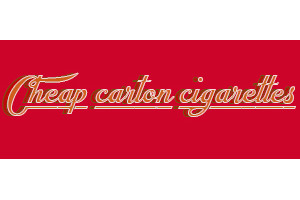cigarette prices in delaware
Cigarette Taxes in Delaware: A Comprehensive Guide

Image Source: Unsplash
Cigarette taxes play a significant role in the pricing of tobacco products in Delaware. Alongside traditional sales taxes, Delaware imposes excise taxes on cigarettes and other tobacco products at both the state and federal levels. These excise taxes are implemented to regulate the consumption of tobacco and to generate revenue for the government. In this comprehensive guide, we will explore the current cigarette tax rates in Delaware, discuss other tobacco products subject to excise taxes, delve into federal tobacco excise taxes, and provide valuable information on the payment of these taxes.
Delaware Cigarette Tax Rates
Delaware has relatively high taxes on cigarettes compared to other states in the United States. The primary excise tax on cigarettes is $1.60 per pack containing 20 cigarettes. It’s important to note that Delaware does not impose sales tax on cigarettes, so only the state and federal excise taxes apply. The average cost of a pack of cigarettes in Delaware is $5.50, ranking 32nd highest in the country.

Other Tobacco Products Tax in Delaware
In addition to cigarettes, Delaware also imposes excise taxes on other tobacco products, including cigars, snuff, and e-cigarettes. The tax rate for other tobacco products is set at 15% of the wholesale selling price. For moist snuff, there is an additional tax of $0.54 per ounce. These taxes are crucial in curbing the consumption of non-cigarette tobacco products and reducing their negative health impacts.

Federal Tobacco Excise Taxes
Apart from state taxes, the price of all tobacco products in Delaware includes federal tobacco excise taxes. These taxes are collected from the manufacturers by the Tobacco and Tobacco Tax and Trade Bureau and are generally passed on to consumers in the product’s price. Let’s take a closer look at the federal excise tax rates for different tobacco products.
Cigars and Cigarettes
| Type of Tobacco Product | Tax Rate |
|---|---|
| Small Cigarettes | $1.01 per pack of 20, or $50.33 per 1,000 cigarettes |
| Large Cigarettes | $2.11 per pack of 20, or $105.69 per 1,000 cigarettes |
| Small Cigars | $1.01 per pack of 20, or $50.33 per 1,000 cigars |
| Large Cigars | 52.75% of sales price but not to exceed $0.4026 per cigar, or $402.60 per 1,000 cigars |
Other Tobacco Products
| Type of Tobacco Product | Tax Rate |
|---|---|
| Pipe Tobacco | $0.1769 per one-ounce tin, or $2.8311 per pound |
| Chewing Tobacco | $0.0315 per one-ounce tin, or $0.5033 per pound |
| Snuff | $0.0944 per one-ounce tin, or $1.51 per pound |
| Roll-your-own Tobacco | $1.5488 per one-ounce tin, or $24.78 per pound |
It is important to note that federal excise taxes are also levied on cigarette rolling paper and cigarette tubes.
Payment of Delaware Tobacco Excise Taxes
The responsibility for paying tobacco excise taxes lies with the vendors rather than the consumers. However, these taxes are ultimately passed on to consumers through the retail price of tobacco products. Vendors are required to submit sales reports and payments on the 20th day of each month. By imposing this payment system, the government ensures the collection of taxes in a timely manner, contributing to the state’s revenue. cigarette prices in delaware
Medical Marijuana Tax in Delaware
While focusing on tobacco taxes, it is worth mentioning that medical marijuana is legal in Delaware. However, it is not subject to any state excise taxes, and there are no federal excise taxes on medical marijuana either. This is due to the conflicting views on marijuana’s legality at the federal level. Thus, medical marijuana remains untaxed in Delaware, which may alleviate the financial burden on patients seeking its therapeutic benefits. cigarette prices in delaware
Conclusion
Cigarette taxes in Delaware significantly impact the pricing of tobacco products and serve as a regulatory measure to discourage smoking. With a state excise tax of $1.60 per pack of cigarettes and additional taxes on other tobacco products, Delaware aims to reduce tobacco consumption and generate revenue. Federal excise taxes also contribute to the overall cost of tobacco products. Understanding these taxes and their implications is crucial for both consumers and vendors. By staying informed, individuals can make informed decisions regarding their tobacco purchases while supporting the state’s revenue goals.
